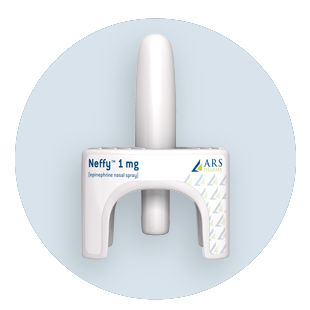Epi by nose, the booster mess, vitamins for diabetes, and more
04 Sep 2021
Posted by Andrew Kantor
Epi-Pens are so 2020
Coming soon — probably — is Neffy: a nasal spray epinephrine that does what an injectable does, but in a much friendlier way. That’s how ARS Pharmaceuticals plans to market it: Less fear, more “treat your disease and relieve your symptoms and not be afraid.”
It got an FDA fast-track designation in 2019, and is now awaiting approval.

Point-of-care testing: Are you ready?
More people are looking to take at-home tests (and avoid that germ-filled doctor’s office). Are you ready to help?
Yes, this is a pitch for the NASPA Pharmacy-based Point-of-Care Testing Certificate Program — which GPhA is offering on Sunday, October 3, at our Sandy Springs World Headquarters.
Flu, strep, HIV, Hep C, and of course coronaviruses — get the skills you need the and the info you want to help patients with those CLIA-waived tests they’re taking.
Read the deets on this nationally recognized certificate program and sign up today!
Fire and forget, antivirus-style
If you don’t feel like replacing every surface around with bronze (or silver), University of Central Florida researchers might have a cheaper way to kill germs: a disinfectant that stays on surfaces for up to seven days, happily killing viruses all the while.
Naturally, it uses nanotechnology. Importantly — and in order to make the news these days — it kills coronaviruses. But it also kills rhinoviruses and “a wide range of other viruses with different structures and complexities.”
Its active ingredient is an engineered nanostructure called cerium oxide, which is known for its regenerative antioxidant properties. The cerium oxide nanoparticles are modified with small amounts of silver to make them more potent against pathogens. “It works both chemically and mechanically. The nanoparticles emit electrons that oxidize the virus, rendering it inactive. Mechanically, they also attach themselves to the virus and rupture the surface, almost like popping a balloon.”
How to reduce diabetics’ heart disease
Vitamin C and fiber. And less fat, of course. So found a study by Cambridge University epidemiologists. Interesting note: People with type 2 diabetes on low-carb diets need to be extra careful, “as these diets typically lead to increases in fat intake.”
Booster confusion
The White House wants to start offering Covid-vaccine boosters in September — that’s eight months after the second dose of mRNA vaccine.
But wait, says the rest of the world, a lot of us haven’t gotten one yet. What’s right? What’s fair?
You know (say health experts), we haven’t even collected enough data on boosters to recommend them yet.
And the FDA isn’t meeting with advisors to discuss boosters until September 17.
Guess what, says the White House? Maybe we’ll start the shots after five months.
But is protection really declining? Not everyone is convinced.
And on that note…
The Long Read: Be Happy edition
In a rare positive article, the Atlantic explains “Don’t Worry, Your Immune Responses Are Supposed to Wane.”
Checking someone’s SARS-CoV-2 antibody levels when there’s no virus around can be a bit deceptive, then. In the absence of a threat, immune cells are quiescent. But the capacity for protection remains intact: When new invaders arrive, they’ll reawaken our defenses.


